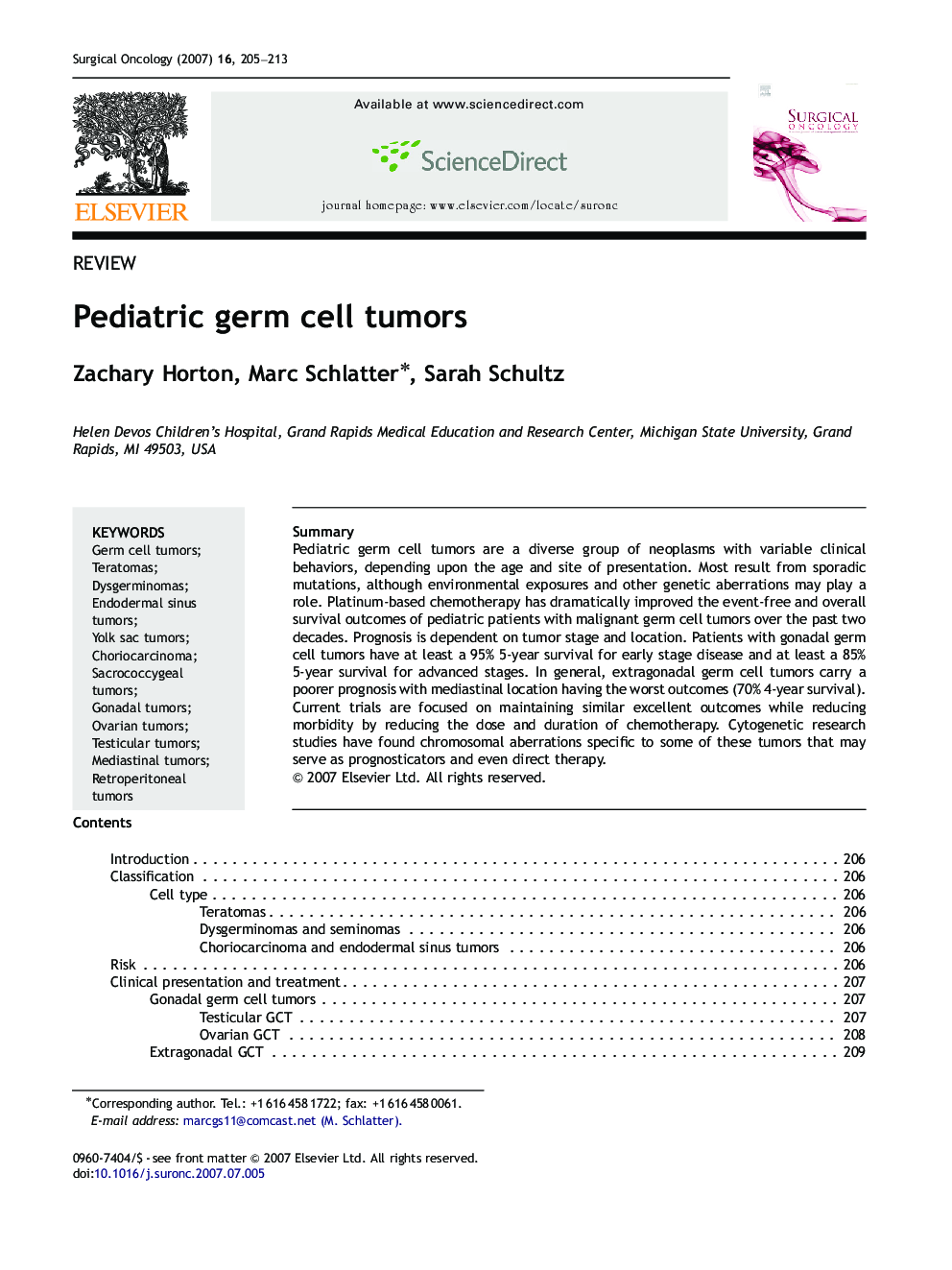| Article ID | Journal | Published Year | Pages | File Type |
|---|---|---|---|---|
| 3998307 | Surgical Oncology | 2007 | 9 Pages |
SummaryPediatric germ cell tumors are a diverse group of neoplasms with variable clinical behaviors, depending upon the age and site of presentation. Most result from sporadic mutations, although environmental exposures and other genetic aberrations may play a role. Platinum-based chemotherapy has dramatically improved the event-free and overall survival outcomes of pediatric patients with malignant germ cell tumors over the past two decades. Prognosis is dependent on tumor stage and location. Patients with gonadal germ cell tumors have at least a 95% 5-year survival for early stage disease and at least a 85% 5-year survival for advanced stages. In general, extragonadal germ cell tumors carry a poorer prognosis with mediastinal location having the worst outcomes (70% 4-year survival).Current trials are focused on maintaining similar excellent outcomes while reducing morbidity by reducing the dose and duration of chemotherapy. Cytogenetic research studies have found chromosomal aberrations specific to some of these tumors that may serve as prognosticators and even direct therapy.
